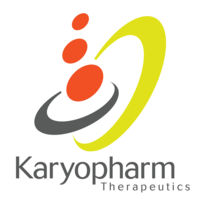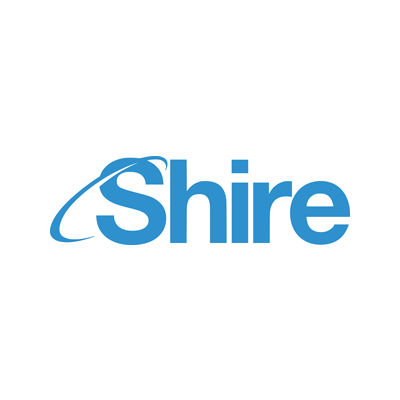预约演示
更新于:2025-05-07
Mixed phenotype acute leukemia
混合表型急性白血病
更新于:2025-05-07
基本信息
别名 Acute mixed lineage leukaemia、Acute mixed lineage leukemia、MPAL + [9] |
简介 An acute leukemia of ambiguous lineage. It is characterized by the presence of either separate populations of blasts of more than one lineage, or one population of blasts co-expressing markers of more than one lineage. |
关联
37
项与 混合表型急性白血病 相关的药物靶点 |
作用机制 menin抑制剂 |
在研适应症 |
非在研适应症- |
最高研发阶段批准上市 |
首次获批国家/地区 美国 |
首次获批日期2024-11-15 |
作用机制 ACADS inhibitors [+1] |
非在研适应症 |
最高研发阶段批准上市 |
首次获批国家/地区 美国 |
首次获批日期2019-07-03 |
79
项与 混合表型急性白血病 相关的临床试验NCT06928662
Sequential Decitabine in Combination With FLAG-Ida Followed Immediately by Reduced-Intensity Conditioning (RIC) Allogeneic Hematopoietic Cell Transplantation (DEC-FLAG-Ida/RIC) for Adults With Myeloid Malignancies at High Risk of Relapse: A Phase 1/2 Study
This phase I/II trial studies the safety, side effects, and best dose of decitabine in combination with fludarabine, cytarabine, filgrastim, and idarubicin (FLAG-Ida) and total body irradiation (TBI) followed by a donor stem cell transplant in treating adult patients with cancers of blood-forming cells of the bone marrow (myeloid malignancies) that are at high risk of coming back after treatment (relapse). Cancers eligible for this trial are acute myeloid leukemia (AML), myelodysplastic syndrome (MDS), and chronic myelomonocytic leukemia (CMML). Decitabine is in a class of medications called hypomethylation agents. It works by helping the bone marrow produce normal blood cells and by killing abnormal cells in the bone marrow. The FLAG-Ida regimen consists of the following drugs: fludarabine, cytarabine, filgrastim, and idarubicin. These are chemotherapy drugs that work in different ways to stop the growth of cancer cells, either by killing the cells, by stopping them from dividing, or by stopping them from spreading. Filgrastim is in a class of medications called colony-stimulating factors. It works by helping the body make more neutrophils, a type of white blood cell. Radiation therapy uses high energy x-rays, particles, or radioactive seeds to kill cancer cells and shrink tumors. TBI is radiation therapy to the entire body. Giving chemotherapy and TBI before a donor peripheral blood stem cell (PBSC) transplant helps kill cancer cells in the body and helps make room in the patient's bone marrow for new blood-forming cells (stem cells) to grow. When the healthy stem cells from a donor are infused into a patient, they may help the patient's bone marrow make more healthy cells and platelets. Giving decitabine in combination with FLAG-Ida and TBI before donor PBSC transplant may work better than FLAG-Ida and TBI alone in treating adult patients with myeloid malignancies at high risk of relapse.
开始日期2025-09-01 |
NCT06926595
Allogeneic Hematopoietic Stem Cell Transplantation (HSCT) With Low-Dose Post-Transplant Cyclophosphamide for Prophylaxis of Graft-versus-Host Disease in Hematological Malignancies
This Phase 2, single-arm, open-label study aims to evaluate the safety and efficacy of low-dose (25 mg/kg) post-transplant cyclophosphamide (PTCy) for prophylaxis of Graft-versus-Host Disease (GVHD) in patients undergoing allogeneic stem cell transplantation following reduced-intensity or non-myeloablative conditioning. The study will focus on matched sibling, matched unrelated, and haploidentical peripheral blood stem cell donors. The primary endpoint is 1-year GVHD-Free Relapse-Free Survival (GRFS). The study seeks to determine if low-dose PTCy offers similar outcomes as higher doses, with potentially reduced toxicity.
开始日期2025-08-01 |
申办/合作机构 |
NCT06551584
Phase I Trial for Patients With Advanced Hematologic Malignancies Undergoing Allogeneic Hematopoietic Cell Transplantation From an HLA-Mismatched Donor (7/8) With Orca-T
The study goal is to characterize the safety of the combination of Orca-T with dual agent GVHD prophylaxis.
开始日期2025-06-01 |
申办/合作机构  Stanford University Stanford University [+1] |
100 项与 混合表型急性白血病 相关的临床结果
登录后查看更多信息
100 项与 混合表型急性白血病 相关的转化医学
登录后查看更多信息
0 项与 混合表型急性白血病 相关的专利(医药)
登录后查看更多信息
779
项与 混合表型急性白血病 相关的文献(医药)2025-05-01·Seminars in Diagnostic Pathology
An update on mixed phenotype acute leukemia
Review
作者: Germans, Sharon K ; Zhang, Bo ; Weinberg, Olga K ; Chen, Weina
2025-04-01·Archives de Pédiatrie
Characteristics and outcome of pediatric mixed-phenotype acute leukemia treated with EORTC 58951 protocol: An observational study in Tunisia
Article
作者: Abdennebi, Yosr Ben ; Bahri, Marwa ; Fekih, Sarra ; Yahia, Ameni ; Amouri, Ahlem ; Ghali, Ons ; Ayed, Wiem ; Azza, Emna ; Aissaoui, Lamia ; Lakhel, Fatma Ben ; Gouider, Emna ; El Borji, Wijden
2025-04-01·Leukemia Research
Molecular genetic characterization of mixed-phenotype acute leukemia (MPAL) with BCR::ABL1 fusion
Article
作者: Wei, Cuihong ; Zhou, Qianghua ; Chang, Hong ; Zhao, Davidson ; Sibai, Hassan ; Zarif, Mojgan ; Shi, Sophia
26
项与 混合表型急性白血病 相关的新闻(医药)2025-03-18
Precision-T study met the primary endpoint of a statistically significant improvement in survival free of moderate-to-severe chronic graft versus host disease (cGvHD), showing 78% with Orca-T versus 38% with conventional allogeneic stem cell transplant (alloHSCT) at one year (HR 0.26, p<0.00001)
Overall survival with Orca-T was 94% compared to 83% with alloHSCT at one year, and the cumulative incidence of moderate-to-severe cGvHD was 13% versus 44%, respectively
Orca Bio is preparing to submit these findings in a BLA to the U.S. FDA in 2025
Results will be presented at the 51st Annual Meeting of the EBMT
MENLO PARK, CA, USA I March 17, 2025 I
Orca Bio, a late-stage biotechnology company committed to transforming the lives of patients through high-precision cell therapy, today announced positive results from the pivotal Phase 3 Precision-T study of Orca-T, its lead investigational allogeneic T-cell immunotherapy, in patients with acute myeloid leukemia (AML), acute lymphoblastic leukemia (ALL), high-risk myelodysplastic syndrome (MDS) and mixed-phenotype acute leukemia (MPAL). Orca-T is manufactured using highly purified regulatory T-cells, hematopoietic stem cells and conventional T-cells derived from peripheral blood from either related or unrelated matched donors.
In the randomized Precision-T study, Orca-T met the primary endpoint of a statistically significant improvement in survival free of moderate-to-severe chronic graft versus host disease (cGvHD) with Orca-T. At one year, the rate for patients who received Orca-T was 78% compared to 38% for patients who received a conventional allogeneic hematopoietic stem cell transplant (alloHSCT). Patients in the Orca-T group achieved an estimated overall survival (OS) of 94% compared to 83% in the alloHSCT arm at one year.
“Today, treating patients with serious blood cancers using allogeneic stem cell transplants requires a difficult risk-benefit trade-off as clinicians aim to cure the disease while avoiding potentially deadly treatment-related toxicities, like GvHD,” said presenting author Everett Meyer, M.D., Ph.D., hematologist and associate professor of medicine in Blood and Marrow Transplantation and Cellular Therapy at Stanford Health Care. “The Precision-T study showed double the rate of survival free from GvHD with Orca-T versus a conventional transplant, a relapse-free survival rate of 76% and no new safety concerns. These findings are highly encouraging and provide compelling new evidence as we work to solve for the critical factors contributing to the needs of this patient population.”
Precision-T Study Results
In the study, all patients (n=187) with a median age of 43.5 years (range 19-65 years) were randomized 1:1 to Orca-T plus single-agent tacrolimus (TAC) or alloHSCT plus TAC methotrexate (TAC/MTX). Patients across both groups received myeloablative conditioning (MAC) and used a related or unrelated matched donor. Patients had a median follow-up time of 11.4 months (range 0.2-24.3 months) across both arms. Key results from the Precision-T study at one year are summarized below:
Exploratory endpoints at one year include the rate of relapse-free survival which was 76% and 74% in the Orca-T and alloHSCT arms, respectively (HR 0.80, p=0.49). The cumulative incidence of non-relapse mortality was 3% in the Orca-T arm and 13% in the alloHSCT arm. Additionally, the cumulative incidence of Grade 3 or 4 acute GvHD was 6% and 17% in the Orca-T and alloHSCT arms, respectively.
No new safety issues were identified with Orca-T. Grade ≥ 4 infections per CTCAE scoring were noted in 6% and 10% of patients in the Orca-T and alloHSCT arms, respectively.
Orca-T was manufactured in Orca Bio’s centralized GMP facility and delivered to patients at 19 treatment centers across the U.S., with all infusions occurring within a vein-to-vein time of 72 hours or less.
“Approximately 46,000 people are diagnosed with AML, ALL and MDS in the U.S. each year, but only a fraction of them receive an allogeneic stem cell transplant within the current paradigm,” said Rawan Faramand, M.D., Blood and Marrow Transplant and Cellular Immunotherapy, Moffitt Cancer Center. “Additional treatment options are needed, and the introduction of a cell therapy like Orca-T that leverages a precision-based approach could pave the way for a new standard of care for patients with various hematologic malignancies.”
“These exciting results underscore Orca Bio’s vision of transforming the treatment landscape for patients living with serious blood cancers, potentially standardizing curative treatment for diseases like AML, ALL and MDS,” said Ivan Dimov, Ph.D., co-founder and chief executive officer at Orca Bio. “We are working closely with the FDA and expect to submit a Biologics License Application this year. These results support the validity of our high-precision platform as we continue to advance our robust pipeline of allogeneic cell therapies for the treatment of hematologic malignancies, autoimmune diseases and beyond.”
Orca Bio is grateful to the patients and families, donors and trial site investigators who participated in the Precision-T study.
The complete results will be presented on April 2, 2025, at the 51st Annual Meeting of the EBMT in Florence, Italy.
About Precision-T
Precision-T (NCT05316701) is a randomized, open-label multi-center study that evaluated the safety, efficacy and tolerability of Orca Bio’s lead investigational allogeneic T-cell immunotherapy, Orca-T, compared to conventional allogeneic hematopoietic stem cell transplant (alloHSCT). Orca Bio received guidance from the U.S. Food and Drug Administration on the design of Precision-T, which evaluated Orca-T in patients with acute myeloid leukemia (AML), acute lymphoblastic leukemia (ALL), high-risk myelodysplastic syndrome (MDS) and mixed-phenotype acute leukemia (MPAL). There are 19 leading treatment centers participating in the trial, which enrolled 187 patients across the U.S.
About Orca-T
Orca-T is an investigational allogeneic T-cell immunotherapy being evaluated for the treatment of multiple hematologic malignancies. Orca-T is composed of highly purified regulatory T-cells, CD34+ stem cells and conventional T-cells derived from peripheral blood from either related or unrelated matched donors. Orca-T has received Regenerative Medicine Advanced Therapy (RMAT) and Orphan Drug Designation for the prevention of graft versus host disease or death in patients eligible for hematopoietic stem cell transplant from the U.S. Food and Drug Administration.
About Orca Bio
Orca Bio is a late-stage biotechnology company developing high-precision cell therapies for the treatment of cancer and autoimmune diseases. Our manufacturing platform uses single-cell precision to create proprietary, uniquely-defined products designed to replace a patient’s diseased blood and immune system with a healthy one. At Orca Bio, we are on a mission to redefine what’s possible for patients by transforming the field of curative allogeneic cell therapy. For more information,
visit
www.orcabio.com
.
SOURCE:
Orca Bio
临床结果免疫疗法细胞疗法临床3期孤儿药
2025-03-17
Orca Bio\'s Orca-T was tied to a 78% rate of survival free of moderate to severe chronic graft-versus-host disease at one year, a statistically significant improvement over the 38% rate seen in patients receiving allogeneic stem cell transplants.\n In a late-stage trial of patients with multiple types of blood cancer, Orca Bio’s allogeneic T-cell immunotherapy doubled the rate at which patients survived without developing chronic graft-versus-host disease (cGVHD) at one year compared with conventional allogeneic stem cell transplants (alloHSCT).“This was the dream that we\'ve had from the beginning of the company—really being able to help these patients who have no options,” Orca Bio CEO and cofounder Ivan Dimov, Ph.D., told Fierce Biotech.“It\'s a very difficult trade-off balance that physicians are always playing, because on the one hand, you want to cure that cancer—which, if you don\'t—can end up killing the patient,” he said. “But at the same time, you\'re very afraid of giving them secondary toxicities that, again, can either kill you or can cause a lifelong problem.”Dimov believes the late-stage trial demonstrates for the first time that people don’t have to “play that trade-off game.” Orca\'s cell therapy provides “good efficacy and low toxicity,” the CEO explained, deeming this combination of features as the “the holy grail” in the space.The California-based biotech is already in talks with the FDA and plans on submitting a biologics licensing application (BLA) sometime this year. Orca Bio’s open-label phase 3 study enrolled 187 patients with acute myeloid leukemia, acute lymphoblastic leukemia, high-risk myelodysplastic syndrome and mixed-phenotype acute leukemia, according to a March 17 release.Patients were randomized to receive either Orca’s cell therapy, known as Orca-T, or standard of care. Participants in the investigational arm also received single-agent tacrolimus, while the comparator cohort received alloHSCT plus tacrolimus methotrexate—a standard GVHD prophylaxis that is tied to several toxicities. All patients received myeloablative conditioning.The trial’s primary endpoint measured survival free of cGVHD, a possible transplant complication in which the donor\'s immune cells attack the patient’s tissues and organs. “cGVHD is one of those huge drivers of toxicity which, in many cases, can be deadly, but in in other cases, it\'s a lifelong disease,” Dimov explained. “So, you end up trading your cancer for this other lifelong, horrible disease, if you\'re lucky to survive.”Orca-T was tied to a 78% rate of survival free of moderate to severe cGVHD at the trial\'s one-year mark, a statistically significant improvement over the 38% rate seen in patients who received alloHSCT. Participants in the Orca-T arm had a median follow-up time of 11 months, while patients in the alloHSCT arm had a median follow-up of 11.5 months.The rate of overall survival—a secondary endpoint—was 94% for Orca-T patients at one year versus 83% for standard of care.The rate of relapse-free survival was 76% and 74% in the Orca-T and alloHSCT arms, respectively.“What this result shows you is that we can significantly drop that bad outcome and really give life to people, and that\'s led to an incredible overall survival rate of 94%, which is unprecedented in the literature and all previous trials,” Dimov said. “It\'s really incredible to see and it hasn\'t come at the expense of higher relapse rates.” Moderate to severe cGvHD occurred in 13% of patients receiving the investigational cell therapy, compared to 44% of patients with alloHSCT.The cumulative incidence of non-relapse deaths was 3% in the Orca-T arm and 13% in the alloHSCT group.On the safety side, grade 4 or 5 infections occurred in 6% and 10% of patients in the Orca-T and alloHSCT arms, respectively. No new safety issues were identified, according to the biotech.Complete results from the trial, dubbed Precision-T, will be presented April 2 at the 51st Annual Meeting of the EBMT in Italy. “We\'re right now engaging the FDA in pretty deep discussions,” Dimov said, adding that the biotech has shared the phase 3 data with the agency and will have more clarity on a specific timeline for a BLA submission after the conversations wrap up.“Our goal is to do it as quickly as possible and bring this to patients,” the CEO said.The biotech is already ramping up for possible commercialization, expanding across manufacturing, regulatory, medical and commercial teams, according to Dimov. As of now, Orca Bio employs 150 to 200 people, the CEO said. When asked about the obstacles other cell therapy makers have faced—such as manufacturing and accessibility issues—Dimov said Orca Bio has “the advantage of not being the very first cell therapy.”“We\'ve been able to see some of these issues and prepare for them ahead of time,” he said, noting that while Orca-T wouldn’t be the first cell therapy marketed, it could become the first allogeneic T-cell immunotherapy to gain U.S. approval.“We\'ve been able to streamline our manufacturing process and really get it down to about 24 to 48 hours,” Dimov said. “All of our patients have a vein-to-vein time of less than 72 hours.”That means that donor cells are collected and transported to a manufacturing facility, where the product is produced and then sent to the hospital for patient infusion—all within 72 hours.“That kind of turnaround time is almost unheard of in the cell and gene therapy space,” according to Dimov.The company has also invested “heavily” into a 100,000-square-foot commercial manufacturing facility that is expected to generate about 3,000 doses a year at its peak, a number Dimov said would represent about 30% of all transplants occurring in the U.S. Orca Bio is powered by a $192 series D raised in 2020, with a total of $300 million secured since being founded in 2016. When asked what the biotech’s next steps would be for procuring further financing, Dimov said the company is open to various options.“We\'ve been very fortunate to be able to remain private and focus on delivering for patients,” he told Fierce. “We have the ability to get this product through the approval process and launch it in the U.S.”That being said, Orca Bio is “always opportunistic about expansion opportunities,” Dimov said.“Our North Star here is get this to be as broadly impactful to patients as possible—across diseases, geographies, volumes, etc.,” the CEO said. “Whether it\'s raising more private money, whether it\'s going public, whether it\'s partnering with a large pharma, if some of these potential pathways will help us significantly in that fundamental goal, of course, we will consider it very seriously.”Ultimately, Dimov views Orca-T as a “potentially standardizing curative treatment,” explaining that standard allogeneic stem cell transplants are one of the few treatments for advanced cancer patients delivered with fully curative intent.However, there’s no standardized regimen for the treatment, with hospitals across the country conducting different kinds of supportive regimens. If Orca-T becomes the first allogeneic T-cell immunotherapy to gain FDA approval, Dimov believes it would help standardize the way patients are treated across different sites. The phase 3 results are also a “strong confirmation” of Orca Bio’s precision platform, according to Dimov, which helped produce another clinical-stage allogeneic T-cell immunotherapy dubbed Orca-Q. The asset is being studied in leukemia and is queued up for testing in autoimmune diseases.

细胞疗法免疫疗法临床3期临床结果
2025-03-17
MENLO PARK, CA, March 17, 2025 – Orca Bio, a late-stage biotechnology company committed to transforming the lives of patients through high-precision cell therapy, today announced positive results from the pivotal Phase 3 Precision-T study of Orca-T, its lead investigational allogeneic T-cell immunotherapy, in patients with acute myeloid leukemia (AML), acute lymphoblastic leukemia (ALL), high-risk myelodysplastic syndrome (MDS) and mixed-phenotype acute leukemia (MPAL). Orca-T is manufactured using highly purified regulatory T-cells, hematopoietic stem cells and conventional T-cells derived from peripheral blood from either related or unrelated matched donors.
In the randomized Precision-T study, Orca-T met the primary endpoint of a statistically significant improvement in survival free of moderate-to-severe chronic graft versus host disease (cGvHD) with Orca-T. At one year, the rate for patients who received Orca-T was 78% compared to 38% for patients who received a conventional allogeneic hematopoietic stem cell transplant (alloHSCT). Patients in the Orca-T group achieved an estimated overall survival (OS) of 94% compared to 83% in the alloHSCT arm at one year.
"Today, treating patients with serious blood cancers using allogeneic stem cell transplants requires a difficult risk-benefit trade-off as clinicians aim to cure the disease while avoiding potentially deadly treatment-related toxicities, like GvHD," said presenting author Everett Meyer, M.D., Ph.D., hematologist and associate professor of medicine in Blood and Marrow Transplantation and Cellular Therapy at Stanford Health Care. "The Precision-T study showed double the rate of survival free from GvHD with Orca-T versus a conventional transplant, a relapse-free survival rate of 76% and no new safety concerns. These findings are highly encouraging and provide compelling new evidence as we work to solve for the critical factors contributing to the needs of this patient population."
Precision-T Study Results
In the study, all patients (n=187) with a median age of 43.5 years (range 19-65 years) were randomized 1:1 to Orca-T plus single-agent tacrolimus (TAC) or alloHSCT plus TAC methotrexate (TAC/MTX). Patients across both groups received myeloablative conditioning (MAC) and used a related or unrelated matched donor. Patients had a median follow-up time of 11.4 months (range 0.2-24.3 months) across both arms. Key results from the Precision-T study at one year are summarized below:
The primary endpoint of survival free of cGvHD was 78% (95% CI: 65%, 87%) in the Orca-T arm (n=93) and 38% (95% CI: 26%, 51%) in the alloHSCT arm (n=94) (HR 0.26; p<0.00001). An interim analysis of the secondary endpoint of OS was 94% (95% CI: 86%, 97%) in the Orca-T arm and 83% (95% CI: 73%, 90%) in the alloHSCT arm (HR 0.49; p=0.11823). An additional secondary endpoint of cumulative incidence of moderate-to-severe cGvHD was 13% (95% CI: 5%, 23%) and 44% (95% CI: 31%, 56%) in the Orca-T and alloHSCT arms, respectively (HR 0.19; p<0.00002).
Exploratory endpoints at one year include the rate of relapse-free survival which was 76% and 74% in the Orca-T and alloHSCT arms, respectively (HR 0.80, p=0.49). The cumulative incidence of non-relapse mortality was 3% in the Orca-T arm and 13% in the alloHSCT arm. Additionally, the cumulative incidence of Grade 3 or 4 acute GvHD was 6% and 17% in the Orca-T and alloHSCT arms, respectively.
No new safety issues were identified with Orca-T. Grade ≥ 4 infections per CTCAE scoring were noted in 6% and 10% of patients in the Orca-T and alloHSCT arms, respectively.
Orca-T was manufactured in Orca Bio’s centralized GMP facility and delivered to patients at 19 treatment centers across the U.S., with all infusions occurring within a vein-to-vein time of 72 hours or less.
“Approximately 46,000 people are diagnosed with AML, ALL and MDS in the U.S. each year, but only a fraction of them receive an allogeneic stem cell transplant within the current paradigm,” said Rawan Faramand, M.D., Blood and Marrow Transplant and Cellular Immunotherapy, Moffitt Cancer Center. “Additional treatment options are needed, and the introduction of a cell therapy like Orca-T that leverages a precision-based approach could pave the way for a new standard of care for patients with various hematologic malignancies.”
“These exciting results underscore Orca Bio’s vision of transforming the treatment landscape for patients living with serious blood cancers, potentially standardizing curative treatment for diseases like AML, ALL and MDS,” said Ivan Dimov, Ph.D., co-founder and chief executive officer at Orca Bio. “We are working closely with the FDA and expect to submit a Biologics License Application this year. These results support the validity of our high-precision platform as we continue to advance our robust pipeline of allogeneic cell therapies for the treatment of hematologic malignancies, autoimmune diseases and beyond.”
Orca Bio is grateful to the patients and families, donors and trial site investigators who participated in the Precision-T study.
The complete results will be presented on April 2, 2025, at the 51st Annual Meeting of The EBMT in Florence, Italy.
临床结果细胞疗法免疫疗法临床3期
分析
对领域进行一次全面的分析。
登录
或

生物医药百科问答
全新生物医药AI Agent 覆盖科研全链路,让突破性发现快人一步
立即开始免费试用!
智慧芽新药情报库是智慧芽专为生命科学人士构建的基于AI的创新药情报平台,助您全方位提升您的研发与决策效率。
立即开始数据试用!
智慧芽新药库数据也通过智慧芽数据服务平台,以API或者数据包形式对外开放,助您更加充分利用智慧芽新药情报信息。
生物序列数据库
生物药研发创新
免费使用
化学结构数据库
小分子化药研发创新
免费使用




